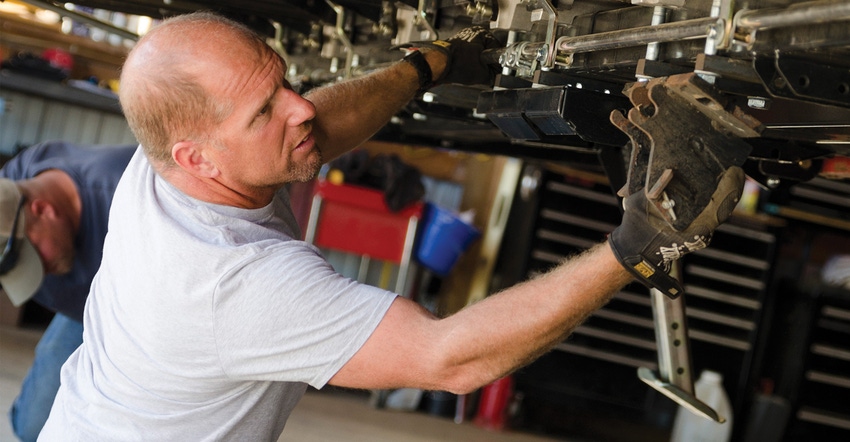
Farmers are overwhelmingly trying to stretch out the life of their machinery wherever possible to manage debt. Nearly 90% of Farm Futures readers say they’re looking to this strategy to lower machinery costs.
Bryan Biegler, who farms 2,500 acres of corn and soybeans in Lake Wilson, Minn., says his equipment buying patterns have changed over the past couple of years, and his balance sheet is thanking him.
“Right now I’m not sitting with much machinery debt — just on my combine. Everything else is paid off,” Biegler says. He’s not trading up until he gets each equipment item paid off, and he doesn’t let tax rules dictate his purchases.
“I’ve never bought a bunch of machinery for the tax break. Sometimes it’s cheaper just to pay the taxes than the machinery costs for that year,” he says.
Sterling Liddell, senior analyst of global data for RaboResearch’s Food & Agribusiness Division, shares that farmers have an opportunity for a financial reset now, especially as the outlook ahead calls for a reduction in total planted area for corn, wheat and soybeans, combined with the potential for a weather-related supply shock that could drive prices temporarily higher.
The potential of temporary retirement of farm machinery debt looks to drive increased profit margins for some heading into 2019, Liddell says.
“As lenders have practiced some discipline relative to financial indicators, the four- to five-year amortization terms have run their course, with remaining debt declining,” Liddell says. “With challenging economic conditions in marketing years 2017-18, total equipment debt is expected to decline in the 2019-20 period.”
He projects that the decline in equipment debt provides a short period of increased margins. “These are expected to decline again but to stay, on average, in slightly positive territory after several years of negative margins, reaching a median of 3.9% of the baseline period.”
Preventive maintenance
Biegler’s been running his current combine for four years, and the normal rotation of every five years may get stretched a little longer for his operation. He still has an hour range when he’ll likely need to upgrade.
“The last time I traded my combine for a new one. If prices stay where they’re at, I’ll probably look more into used machinery,” he notes.
But in the meantime, he continues to use more service programs for preventive maintenance. Repair costs have been on the rise for his operation the last couple of years; but previously, machinery was traded off before those costs had to be realized.
Biegler does much of the maintenance himself, and works with a local repair shop and dealership. The preventive maintenance — including changing out all oil filters and combine bearings, pulleys and belts that show any signs of wear — eases his mind some.
“It gives me a comfort level that we aren’t going to have a major breakdown in the field. The hope is that we’re going to catch the thing that’s going to go in the repair shop,” he says.
About the Author(s)
You May Also Like






